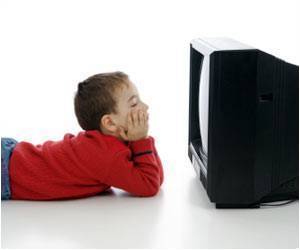
The Iowa State University Distinguished Professor of psychology appointed 12 IRSA researchers to the commission, including Douglas Gentile, an ISU associate professor of psychology.
A well-known researcher on the effects of media on children, Gentile said commission members took a fair and balanced look at all of the existing research to see if they could achieve consensus, and then summarized what they found.
In their report, the commission wrote that aside from being sources of imitation, violent images-such as scenes in movies, games or pictures in comic books-act as triggers for activating aggressive thoughts and feelings already stored in memory.
If these aggressive thoughts and feelings are activated over and over again because of repeated exposure to media violence, they become chronically accessible, and thus more likely to influence behaviour.
"One may also become more vigilant for hostility and aggression in the world, and therefore, begin to feel some ambiguous actions by others (such as being bumped in a crowded room) are deliberate acts of provocation," the commission wrote in the report.
Advertisement
"Parents can also set limits on screen use (The American Academy of Pediatrics recommends no screen time for children under 2 and no more than one to two hours total screen time per day for children/youth 3-18), and should discuss media content with their children to promote critical thinking when viewing," the researchers wrote.
Advertisement
It also recommends putting efforts into improving media ratings, classifications, and public education about the effects of media on children.
"Improving media ratings really has two pieces. One is that the media ratings themselves need to be done by an independent entity-meaning, not by an industry-influenced or controlled system," said Anderson, himself a leading researcher of the effects of violent media on children.
"They need to be ratings that have some scientific validity to them.
"But the other piece is education, and if parents aren't educated-not just about what the ratings system does, but also about why it's important for them to take control of their child's media diet-then it doesn't matter how good the ratings system is, because they're going to ignore it anyway," he added.
Their report has been published in the September/October issue of the journal Aggressive Behavior.
Source-ANI









